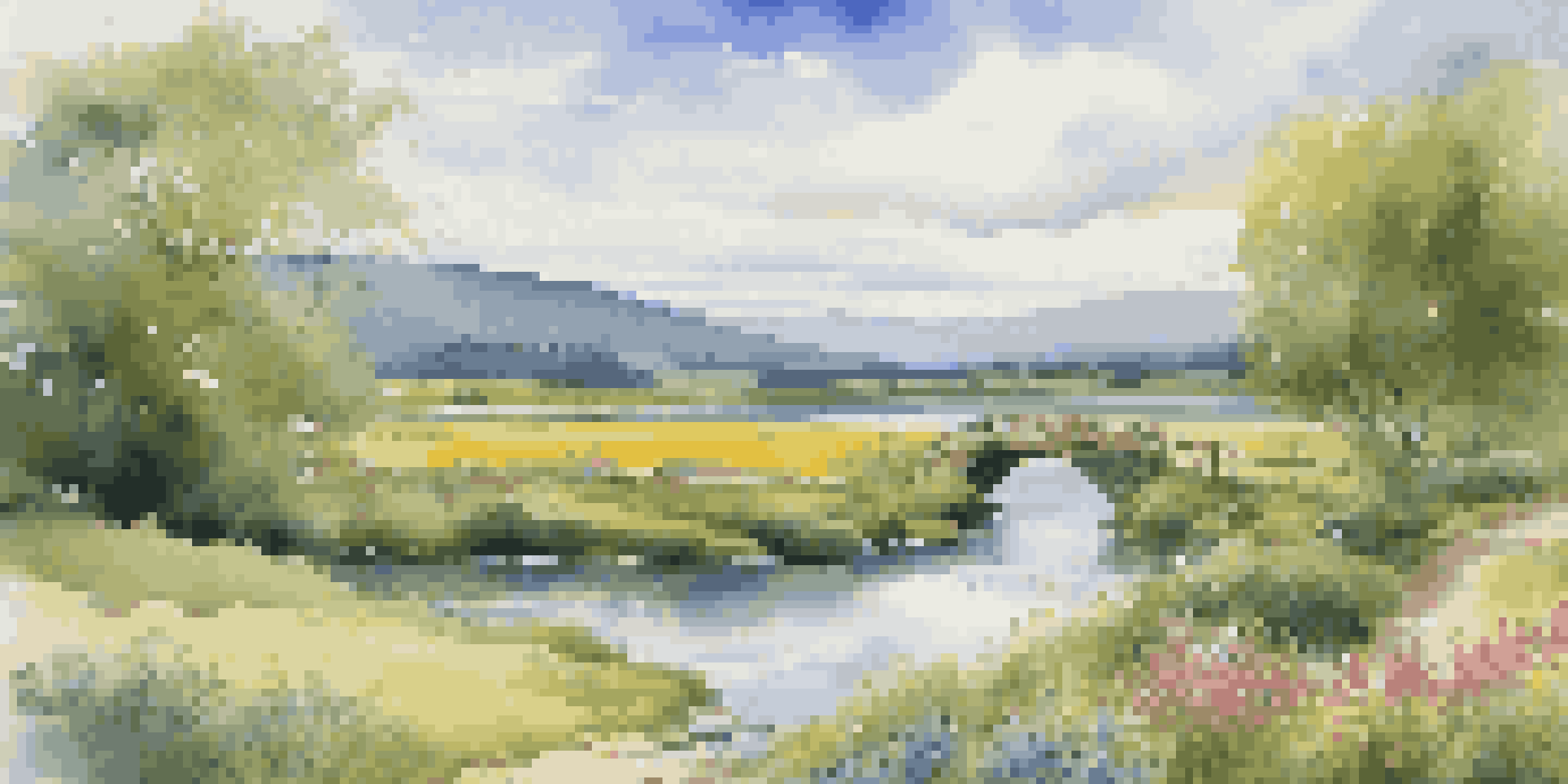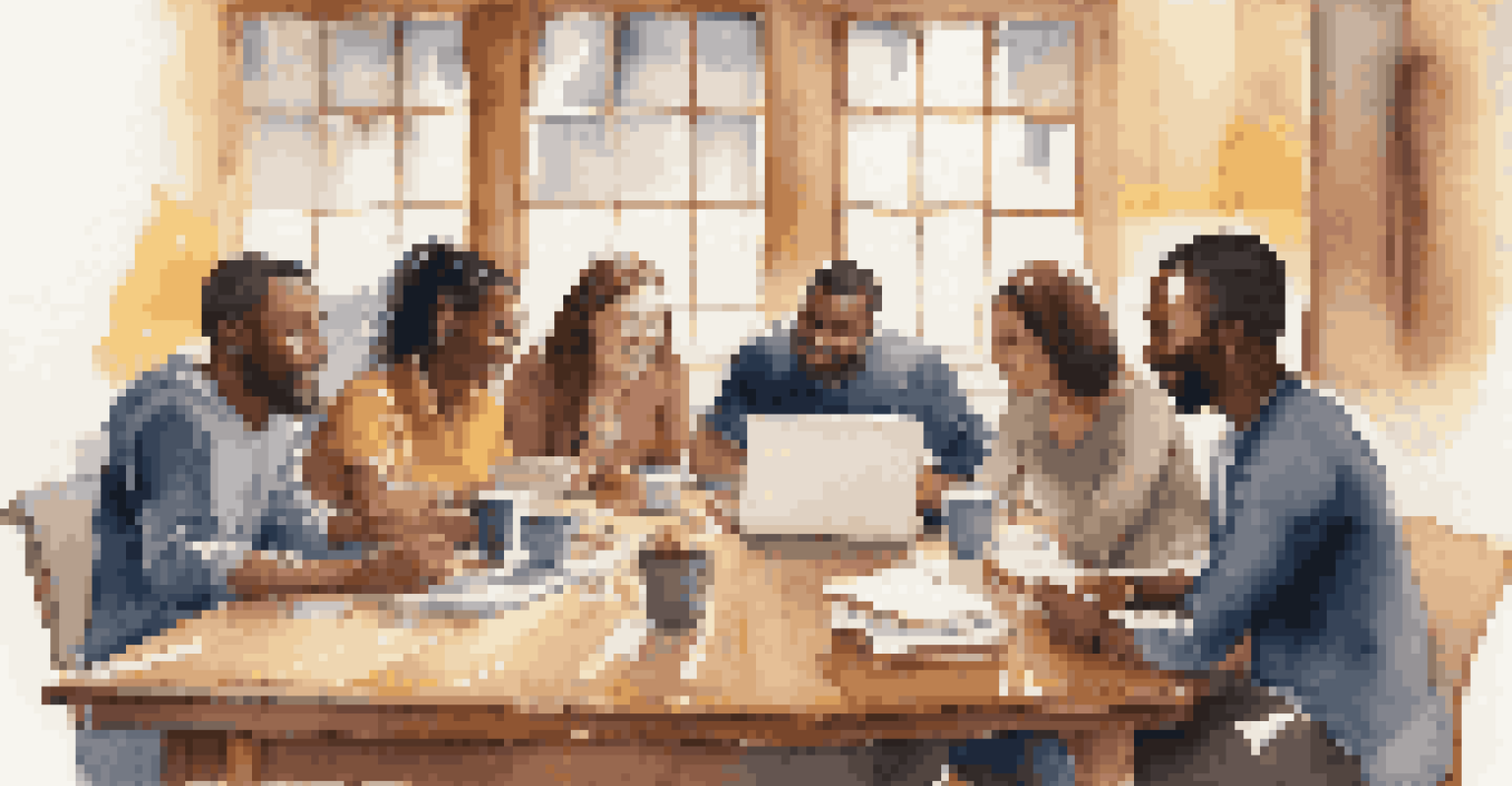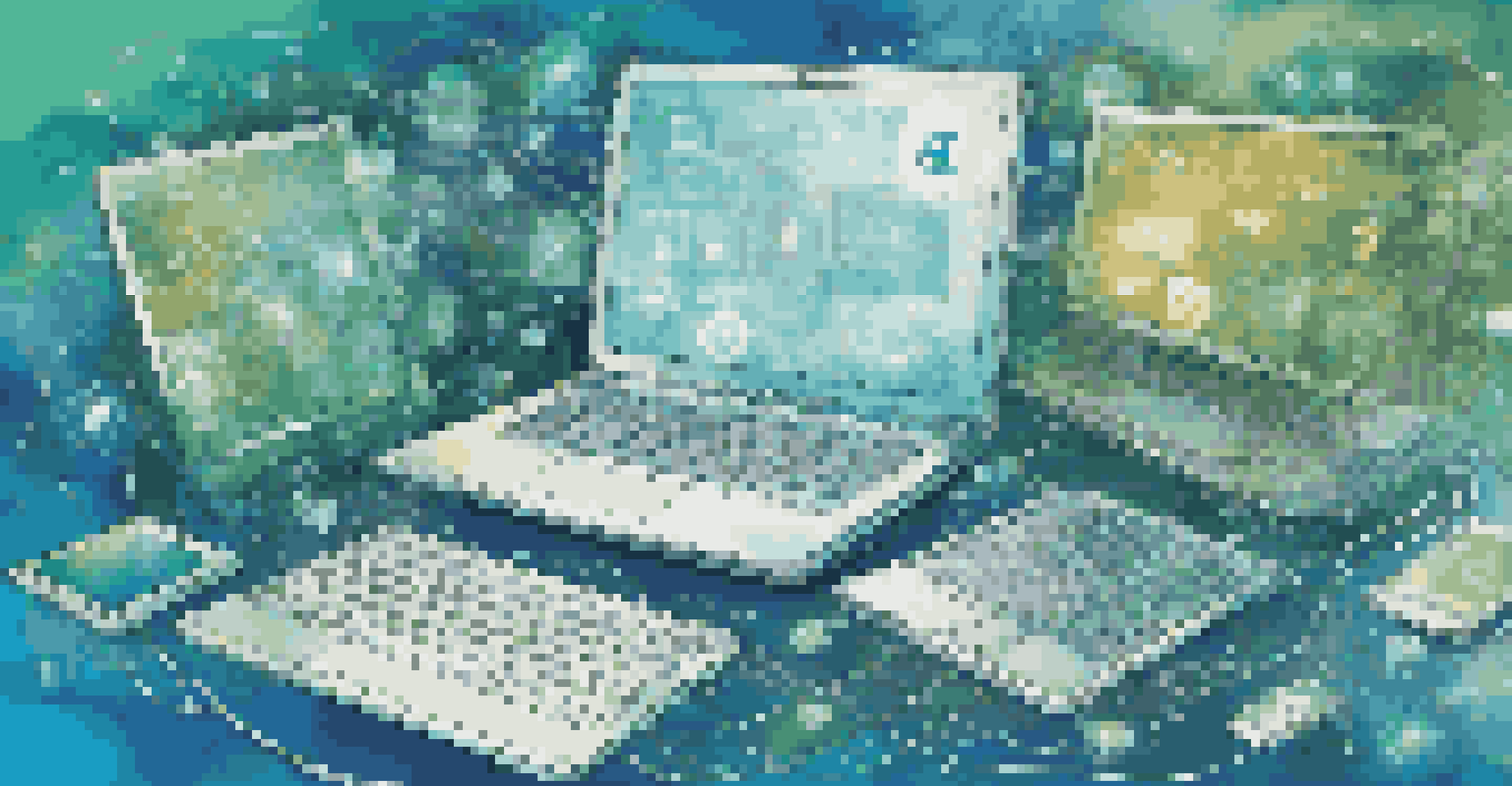The Interplay Between Personal Experience and Knowledge Building

Understanding Personal Experience in Knowledge Building
Personal experience serves as a powerful foundation for how we acquire knowledge. It encompasses the unique insights gained through our own interactions and reflections. These experiences shape our perceptions and influence how we interpret new information.
We do not learn from experience... we learn from reflecting on experience.
When we learn something new, it's often filtered through our past experiences. For instance, someone who has traveled extensively may understand cultural nuances in a way that someone who hasn't can’t. This personal lens adds depth to our understanding, making knowledge more relatable and tangible.
Moreover, personal experiences can evoke emotions that enhance memory retention. When a lesson resonates with us on a personal level, we are more likely to remember it. This emotional connection can turn abstract concepts into vivid memories, enriching our overall knowledge base.
The Role of Reflection in Learning from Experience
Reflection is a crucial step in transforming experiences into valuable knowledge. It involves taking the time to think critically about what we've encountered and how it relates to our existing beliefs and ideas. This process helps us draw meaningful connections between past experiences and new learning opportunities.

For example, after a challenging project at work, reflecting on the obstacles faced can reveal important lessons about problem-solving and teamwork. This reflection not only solidifies the knowledge gained but also prepares us for future challenges. Without reflection, experiences may remain just memories without contributing to our growth.
Personal Experience Shapes Knowledge
Our unique interactions and reflections form the foundation of how we acquire and interpret knowledge.
In essence, reflection acts as a bridge between experience and knowledge. It enables us to analyze our actions, understand their outcomes, and apply those lessons in future situations. This continuous cycle of reflection and learning is key to personal and professional development.
How Knowledge Influences Personal Experience
Just as personal experience shapes knowledge, existing knowledge can influence how we perceive and engage with new experiences. Our prior knowledge acts as a lens through which we interpret the world around us. This interplay creates a dynamic relationship between what we know and how we experience life.
The only source of knowledge is experience.
For instance, someone with a background in psychology may approach interpersonal conflicts differently than someone without that knowledge. Their understanding of human behavior can lead them to navigate social situations more effectively, enriching their personal experiences. This demonstrates how knowledge can enhance our ability to engage meaningfully with others.
Furthermore, this influence can lead to a cycle of continuous learning. The more we know, the deeper our experiences become, and the richer our knowledge grows. It’s a beautiful feedback loop that encourages lifelong learning and personal growth.
The Impact of Cultural Context on Experience and Knowledge
Cultural context plays a significant role in shaping both personal experiences and knowledge building. Different cultures emphasize various values and practices, influencing how individuals interpret their experiences. This diversity enriches the tapestry of human understanding.
For example, in collectivist cultures, experiences may be viewed through the lens of community and relationships, while individualistic cultures might emphasize personal achievement. These differing perspectives can lead to unique insights and interpretations, fostering a broader understanding of knowledge.
Reflection Enhances Learning
Taking time to critically reflect on our experiences is essential for transforming them into valuable knowledge.
Additionally, exposure to diverse cultures can enhance our own knowledge base. By engaging with different perspectives, we can challenge our assumptions and expand our understanding. This cultural exchange not only broadens our horizons but also fosters empathy and connection.
The Role of Mentorship in Knowledge Building
Mentorship is a valuable avenue for translating personal experiences into knowledge building. A mentor can provide guidance, share their own experiences, and help navigate challenges. This relationship allows for the exchange of knowledge, enriching both parties.
Consider a junior employee learning from a seasoned professional. The mentor's insights, drawn from years of experience, can illuminate paths that the mentee may not have considered. This transfer of knowledge can accelerate the mentee's learning and development.
Moreover, mentorship encourages reflective practices. As mentees process their experiences with a mentor, they gain a deeper understanding of their own learning journey. This collaboration fosters a supportive environment for personal growth and knowledge enhancement.
The Role of Technology in Facilitating Knowledge Sharing
In today's digital age, technology plays a pivotal role in how we share and build knowledge. Online platforms and social media enable individuals to share their personal experiences with a global audience. This accessibility fosters a rich exchange of ideas and insights.
For example, blogs, podcasts, and webinars allow individuals to share their stories and lessons learned. This sharing not only benefits the author but also provides valuable knowledge to others who may relate to those experiences. Technology transforms personal stories into collective knowledge.
Cultural Context Influences Insight
Cultural backgrounds significantly shape our perceptions and interpretations of experiences, enriching our overall understanding.
Additionally, online communities encourage collaboration and discussion. Whether through forums or social media groups, individuals can connect over shared experiences, enriching their understanding. This interconnectedness exemplifies how technology can amplify the interplay between personal experience and knowledge building.
Harnessing Personal Experiences for Lifelong Learning
To fully leverage the interplay between personal experiences and knowledge, we must embrace a mindset of lifelong learning. This involves recognizing that every experience—positive or negative—holds valuable lessons. By maintaining curiosity and openness, we can continuously expand our knowledge base.
Engaging in self-directed learning and seeking new experiences can enhance this process. Whether it’s taking a class, traveling, or networking, each opportunity provides a chance to learn and grow. The key is to stay proactive and reflect on how these experiences shape our understanding.

Ultimately, harnessing personal experiences for lifelong learning enriches our knowledge and personal growth. It's an ongoing journey that invites us to explore, reflect, and evolve, turning every moment into an opportunity for deeper understanding.